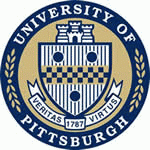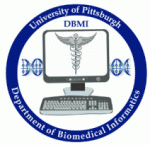Great Lakes Bioinformatics Conference 2013
Tutorial Sessions - Tuesday May 14, 2013
Updated May 09, 2013
TUTORIAL 1
9:00 am - 11:00 am
Location: McConomy
Spatial Rule-based Modeling of Cellular Biochemistry with MCell/BioNetGen/CellBlender
James Faeder
University of Pittsburgh School of Medicine
Markus Dittrich
Pittsburgh Supercomputing Center
Dr. Faeder is Associate Professor of Computational and Systems Biology at the University of Pittsburgh School of Medicine. His research focuses on the development of novel computational methods and tools for the modeling and simulation of cell regulatory networks, as well as their application to specific systems of basic and biomedical relevance including immune regulation, cancer, and chemo-sensing in bacteria. Dr. Faeder's group also leads the development of the BioNetGen software for rule-based modeling of biochemical systems and is currently working on the integration of rule-based and spatial modeling.
Dr. Dittrich is Director of the National Resource for Biomedical Supercomputing at the Pittsburgh Supercomputing Center. His group uses computer models and simulation to study the structure and function of synapses. He is also one of the main developers of the MCell simulation package.
Dr. Faeder and Dr. Dittrich are both members of the Cell Modeling component of the NIH P41 Center for Multiscale Modeling of Biological Systems (MMBioS) at the University of Pittsburgh, which supports development of the MCell simulation platform for simulation of spatially realistic 3-D cellular models
. . . . . . . . . . . . . . . . . . . . . . . . . . . . . . . . . . . . . . . . . . . . . . . . . . . . . . . . . . . . .
TUTORIAL 2
12:00 pm - 2:00 pm
Location: McConomy
Exploring and Enabling Biomedical Data Analysis with Galaxy
Chair: Anton Nekrutenko, Penn State University
Are you a biomedical researcher who needs to do complex analysis on high throughput NGS datasets? Galaxy (http://galaxyproject.org/) is an open, web-based platform for data intensive biological research that enables non-bioinformaticians to create, run, tune, and share their own bioinformatic analyses. This workshop will show participants how to integrate data and perform simple and complex analysis within Galaxy. It will also demonstrate how Galaxy enables reproducibility in bioinformatics, and how to use visualization to refine and drive analysis, all within the Galaxy Framework. Finally, the workshop will highlight how researchers can install Galaxy on local computational resources, or using computational cloud providers such as Amazon Web Services.
. . . . . . . . . . . . . . . . . . . . . . . . . . . . . . . . . . . . . . . . . . . . . . . . . . . . . . . . . . . . .
TUTORIAL 3
2:30 pm - 4:30 pm
Location: McConomy
Machine Learning in High Dimension for Genomic Data Analysis
Chair: Seyoung Kim, Machine Learning in Biology
Abstract: The recent advances in the high-throughput technology such as next-generation sequencing technology have allowed the researchers to collect a large amount of data for genomes and various other aspects of a cell system. Such datasets hold the key to understanding the detailed mechanisms of the genetic control of a biological system and further deepening our knowledge of cell biology with a potential application to medicine. Genomic data often lie in a very high-dimensional space in which many entities interact with each other in a complex manner, as in expression measurements for tens of thousands of genes and genotypes of millions of genetic loci. This tutorial will introduce statistical machine learning techniques for learning statistical models of various kinds in very high-dimensional space with fast and highly scalable learning methods. In particular, the tutorial will discuss sparse learning methods for regression and graphical models, structured-sparse learning, multi-task learning, and optimization methods. Then, it will show how such techniques can be applied to various types of genomic datasets to extract complex epistatic and pleiotropic interactions among various entities in a biological system.
Bio: Dr. Seyoung Kim is an assistant professor in the Lane Center for Computational Biology in the School of Computer Science at Carnegie Mellon University. Her research focuses on developing and applying statistical machine learning methods for understanding how the information encoded in genomes shapes the biological system in terms of gene regulations, phenotypes, diseases, and developments. Dr. Kim received her B.S. in computer engineering from Seoul National University, Korea, and Ph.D. in computer science from the University of California, Irvine. She was a postdoctoral fellow in Machine Learning Department at Carnegie Mellon University. She is a recipient of the NSF Career Award and the Alfred P. Sloan Fellowship.






